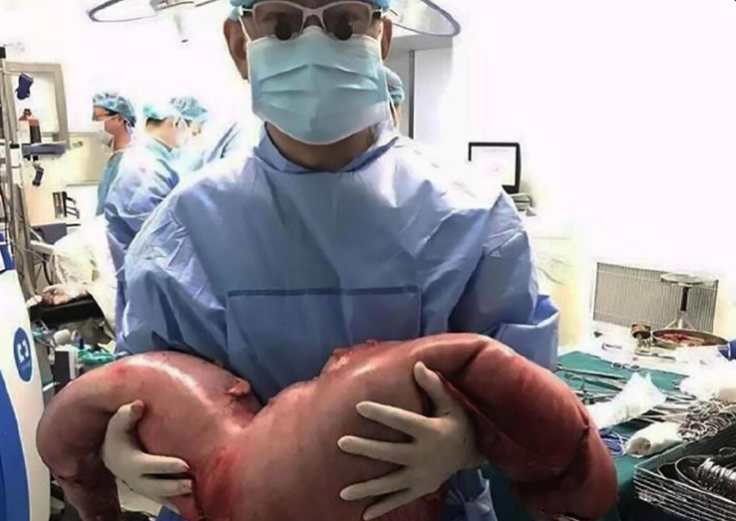Man Has 30 Lbs Of Feces Removed From Intestines; How Hirschsprung's Disease Caused Impacted Megacolon

A man from China had nearly 30 pounds of feces removed from his body after it became impacted in his colon and made it difficult for him to breath. The severe abdominal pain and colon problems were the result of a condition known as Hirschsprung's disease.
Zhou Hai, 22, had a section of his colon weighing 28.6 pounds and measuring 30 inches removed, AsiaOne reported. Hai went to the hospital complaining of abdominal pain so bad that it made it difficult to breath. A CT scan revealed that his colon had become distended and was storing an amount of feces so large that it “looked like [it] could explode at any time,” explained Dr. Yin Lu, who operated on the young man, The Mirror reported. The three-hour operation took place at the 10th People’s Hospital of Shanghai in eastern China.
Read: British Bodybuilder's Colostomy Bag Brings Him No Shame
According to the Mayo Clinic, Hirschsprung's disease is a condition that affects the large intestines and makes it difficult for the individual to have a bowel movement. The condition is a result of missing nerve cells in the muscles of the colon. Without these cells, it is extremely difficult to push waste through the intestines. The condition is present from birth and usually noticed soon after a child is born. However, if left untreated, as in Hai’s cause, it can cause a megacolon, or abnormal dilation of the colon.
The signs and symptoms of Hirschsprung's disease include a swollen belly, vomiting, constipation or gas, and diarrhea, The Mayo Clinic reported. The true cause of the condition is not clear, although it seems to be hereditary and in some cases may be due to a genetic mutation. The condition is also more common in males, and in those with other inherited conditions such as Down's syndrome and congenital heart disease.
The condition is usually treated with surgery early in life to bypass the part of the colon that has no nerve cells. The abnormal part of the colon is removed and the healthy part is attached to an opening the doctors will make in the child’s abdomen, called a stoma. This is usually temporary, and allows time for the lower colon to heal before it is reconnected.
AsiaOne reported that Hai’s condition went untreated for the majority of his life. He reportedly relied on laxatives to help him use the bathroom, but still a large amount of feces built up in his intestines over the course of many years. This is extremely dangerous, as feces is made up of poisons and toxins meant to be eliminated from your body.
Surgeons save constipated man's life by removing 13kg of faeces https://t.co/s48y6zrOhj pic.twitter.com/tDBVwK2HIc
— AsiaOne (@sphasiaone) June 12, 2017
See Also:
Constipation Pain, For Starters: What Would Happen If You Didn't Poop For Weeks?



























